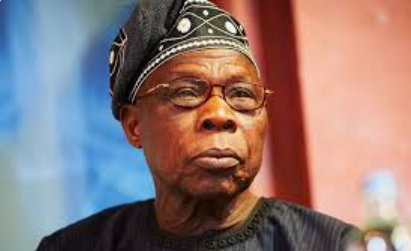Nigeria’s energy sector is experiencing a resurgence, marked by a significant increase in investor confidence and a renewed focus on maximizing its resource potential. Olu Verheijen, the Special Adviser on Energy to President Bola Tinubu, emphasized this positive trajectory at the Nigeria International Energy Summit 2025, highlighting the country’s success in securing three out of Africa’s four Final Investment Decisions (FIDs) in 2024, totaling over $5.5 billion. This achievement underscores Nigeria’s position as a prime destination for deep offshore oil and gas investments and signals a promising future for the sector. The government’s commitment to streamlining regulations and creating a more attractive investment climate through presidential directives has been instrumental in attracting these major investments, exemplified by the Ubeta FID secured through a Total JV and Shell’s approval of the Bonga North FID. These developments mark a turning point, setting the stage for further growth and solidifying Nigeria’s role as a key player in the global energy market.
The revitalization of Nigeria’s energy sector extends beyond attracting new investments. The year 2024 witnessed significant progress, including the approval of the first deepwater FID in over a decade, five major asset acquisitions, the revival of two domestic refineries, and the commencement of petrol production at Dangote Refinery, Africa’s largest. These accomplishments demonstrate a comprehensive approach to strengthening the entire energy value chain. Looking ahead, the anticipation of additional FIDs in 2025 further reinforces investor confidence. The five major asset acquisitions completed in 2024 are poised to play a critical role in accelerating production growth, leveraging the expertise of local operators and ensuring more efficient resource management. This strategic integration of local and international expertise is crucial for maximizing the benefits of Nigeria’s vast energy resources and driving sustainable economic development.
Historically, Nigeria faced challenges in attracting substantial new oil and gas investments, with billions of dollars diverted to other regions due to concerns over regulatory stability and fiscal frameworks. However, the Tinubu administration has actively addressed these concerns, implementing reforms aimed at enhancing security in oil-producing regions and establishing a data-driven security framework in collaboration with operators and security agencies. These efforts have yielded positive results, leading to a significant increase in oil production. With ambitious targets of restoring production to 2.06 million barrels per day in the near term and reaching four million bpd by 2030, the government is focused on attracting more FIDs, expanding deepwater operations, and ensuring Nigeria remains competitive amongst other oil and gas investment destinations. This proactive approach signals a commitment to long-term growth and stability in the sector.
The strategic realignment of operators within Nigeria’s oil and gas landscape is a key element of the country’s renewed focus on production growth. The five major asset acquisitions completed in 2024 have facilitated the integration of operators with deep local expertise and operational agility, allowing international oil companies to concentrate on deepwater operations where their capital and technical capabilities are most effective. This collaborative approach optimizes resource extraction and management, driving sustained production growth and ensuring a steady increase in output. By fostering partnerships that leverage the strengths of both local and international players, Nigeria is creating a more dynamic and resilient energy sector.
Beyond the traditional focus on oil and gas, Nigeria is asserting its influence in shaping Africa’s energy future. The country’s efforts to expand domestic refining capacity, improve electrification, and enhance liquidity in the power sector are transforming the energy landscape. The Presidential Metering Initiative, a key component of these reforms, aims to deploy seven million smart meters, eliminating the inefficiencies of estimated billing, improving revenue collection for electricity distribution companies, and significantly enhancing service delivery. Addressing outstanding debts owed to gas suppliers and power generation companies, coupled with the implementation of cost-reflective tariffs with targeted subsidies, further strengthens the financial stability and investment attractiveness of the power sector, ultimately driving industrialization and economic growth.
Nigeria’s commitment to energy security extends beyond its borders, contributing to the economic resilience of the entire African continent. By leveraging its vast energy resources for industrial development and strategic exports, Nigeria is laying the groundwork for sustainable job creation, economic diversification, and long-term prosperity. The success in securing major investments, expanding domestic refining capacity, and enhancing electrification not only represents a national achievement but also has far-reaching implications for regional energy security, intra-African trade, and industrialization. This broader perspective positions Nigeria as a leader in driving sustainable energy development across Africa, fostering economic growth and stability throughout the region.














